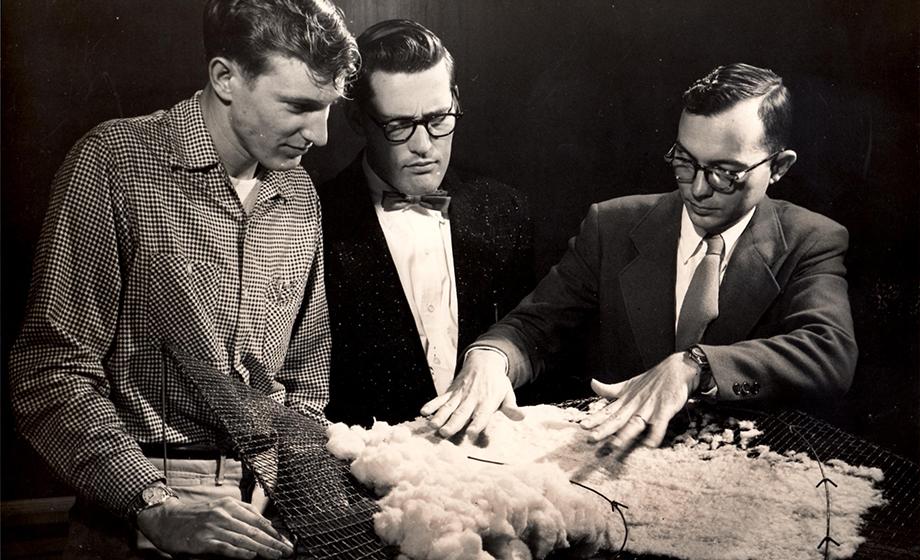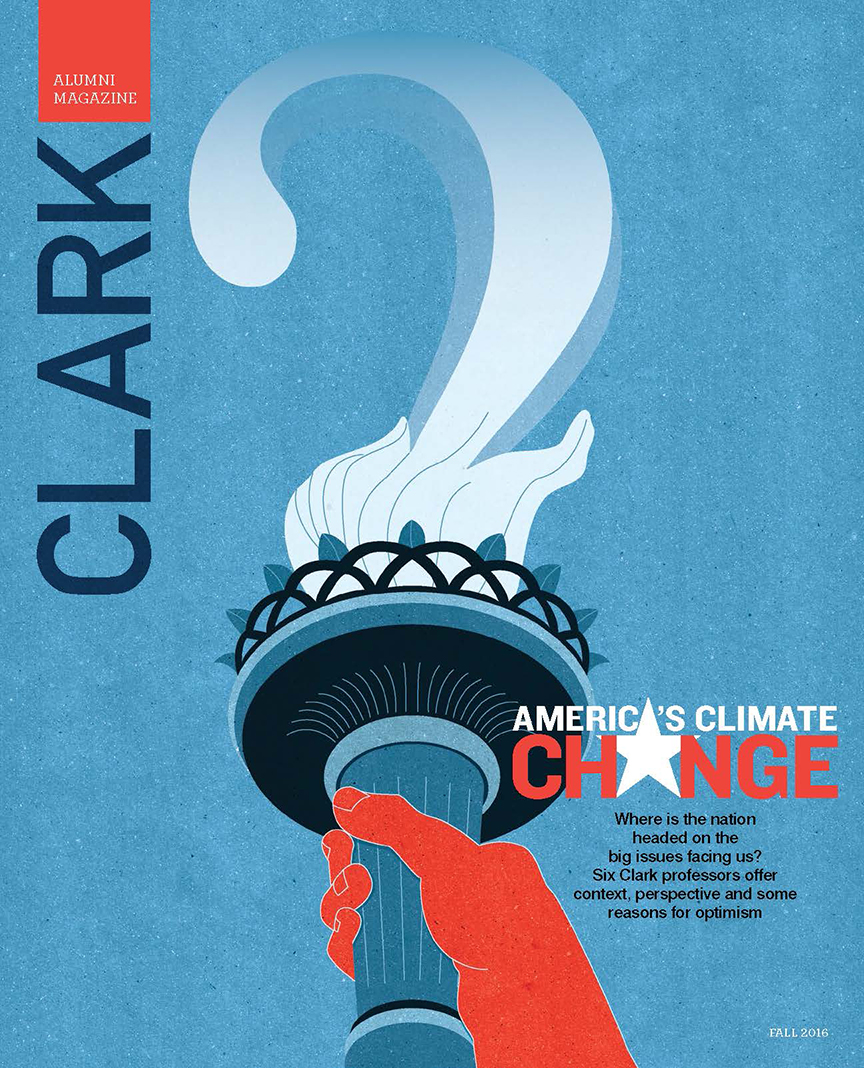Remembering Clark’s impact

After decades spent in hibernation, The Monadnock was revived in 2014 at the request and with the support of several longtime alumni. The newsletter, published by the Clark University Geographical Society, was launched in 1927, and was resurrected to link the storied past of the Graduate School of Geography with its robust present through profiles, stories and detailed research updates.

One special person sharing in that legacy is Wallace E. “Mac” McIntyre, M.A. ’47, Ph.D. ’51 (above, right), who sometimes appeared alongside his crisply dressed classmates in old issues of The Monadnock. Mac never forgot his appreciation and affection for Clark, and this fall made a $1 million gift to the Graduate School of Geography. The majority of the donation, reflected in The Wallace E. McIntyre, M.A. ’47, Ph.D ’51, and Margaret P. McIntyre Endowed Fund for Graduate Students in Geography, will provide student scholarship assistance.
It is the perfect match of man and gift. Better than most, Wallace McIntyre knows the value of a dollar to a struggling student.
As a young boy, Mac moved from rural Illinois to a mining town in Arizona, where his ailing father “took the cure” for his tuberculosis. This was in the 1920s, when the West was still kissed with a streak of wildness. The night a gunfight broke out at a local establishment, one of the gunmen fled the scene, burst through the front door of the McIntyres’ house and continued his getaway out the back door.
Arizona’s dry, hot air failed to do its medicinal job, and the McIntyres moved back to the family farm in Illinois, where Mac’s dad’s lungs finally gave out. His mother later remarried, but the family lost everything during the Great Depression.
Mac’s mother always urged her son to pursue his education, convinced it was his only chance for a consequential life. She took part-time accounting work, washed people’s laundry, cleaned houses — whatever was necessary to send him to college.
He earned his degree from Illinois State University, but World War II interrupted any plans for further education. Mac spent two years in the Coastal Artillery before arriving at Clark on the G.I. Bill (he learned of the University’s preeminence in the field by perusing geography journals). His passion was economic geography, and he would write his dissertation on the hydroelectric power industry in Niagara Falls, his wife Peggy’s hometown.
“He was a great companion on long rides,” recalls his son, Dr. William McIntyre. “He would point out mountains and tell you why they were in certain locations, and why they were certain colors. He’d grown up on a farm and the study of the earth just seemed to resonate with him.”
Mac had a thirst for two things: an academic career and international travel. He fulfilled both goals, first becoming a professor at Illinois State University, then teaching at the University of the Philippines on a Fulbright fellowship, and in Frankfurt, Germany, through an armed services extension program. But he spent most of his career working for the CIA, traveling to the Middle East, Turkey and other far-flung locations before retiring in 1980.
He rarely discussed the details of his CIA job, though he profiled other countries’ geographical details and natural resources to determine how these nations might evolve over time, particularly economically. “It wasn’t about espionage,” Dr. McIntyre says. “He was trying to appraise what a country would become.”
Now 98 years old, Wallace McIntyre remains living proof that his mother was right about the value of a good education. His gift is Mac’s thank-you to the institution that supplied a poor farm boy access to a life he otherwise never would have experienced.
“My father used to say that if it wasn’t for Clark he would have been stuck teaching in a one-room schoolhouse,” his son says. “It’s hard for us now to imagine how desperate those times were. Clark gave him an avenue to realize his dreams and ambitions. It opened up the world for him.”


